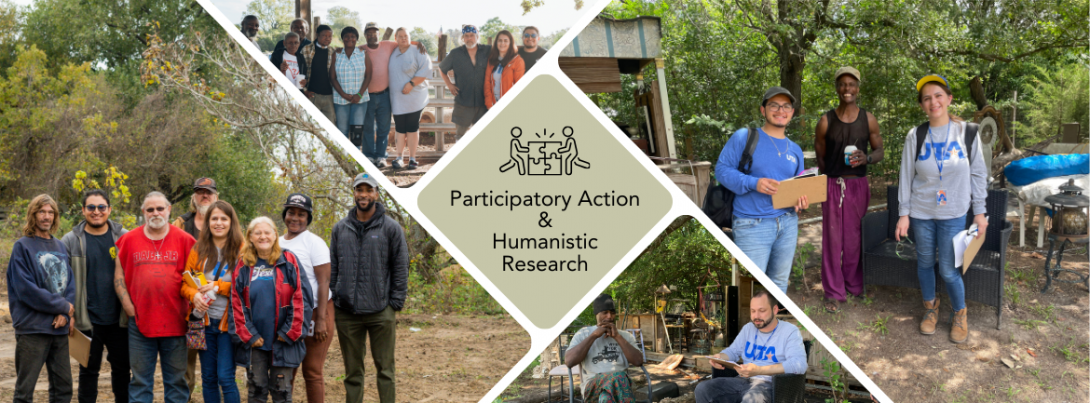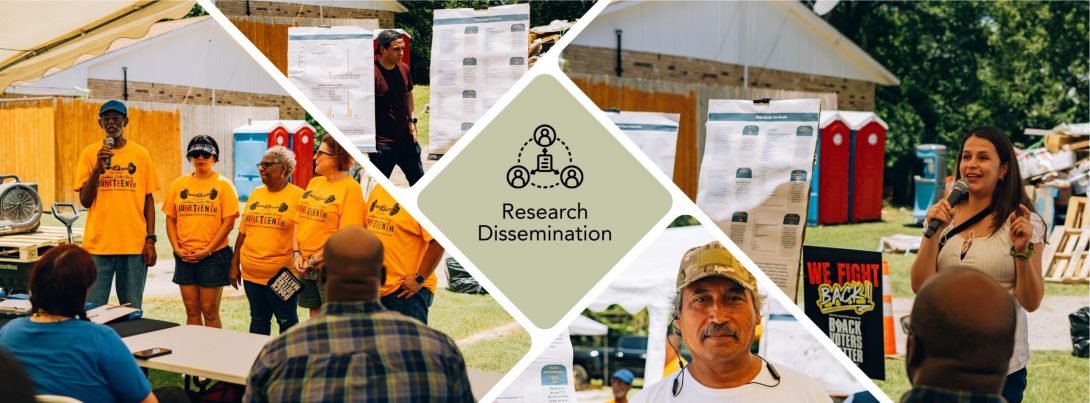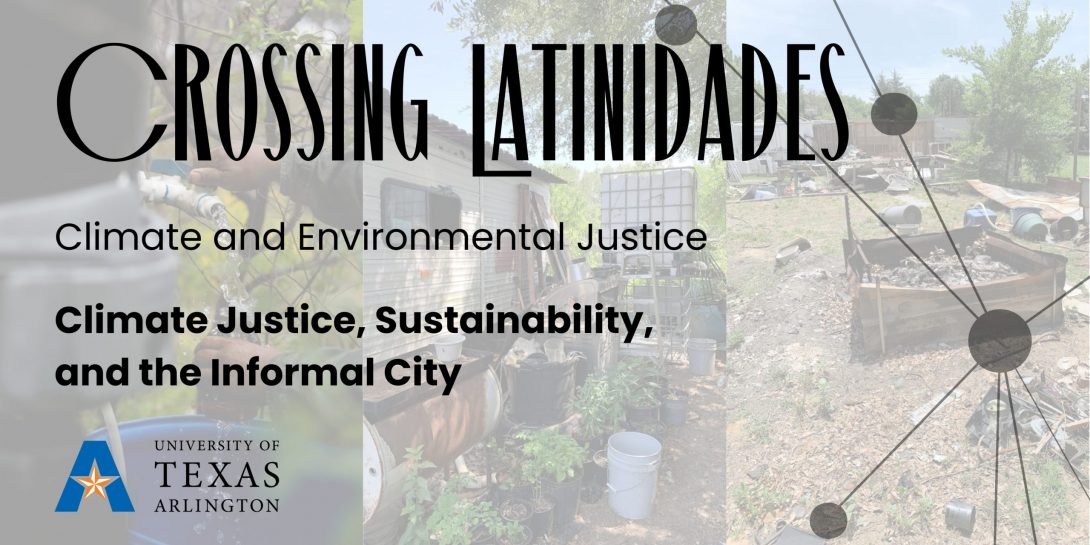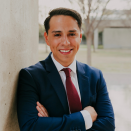Summary
The Springville Environmental and Climate Justice Project, spearheaded by Dr. Ariadna Reyes and her collaborative team, including Josh Newton, Bernardo Vargas, and Luis Macias, addresses the profound inequalities faced by “Springville,” a historic community in Dallas County. Founded by formerly enslaved African Americans in the 1870s, Springville remains an unincorporated, predominantly African American and Latinx neighborhood deprived of essential municipal services like piped water, sewers, and trash pickup, echoing the plight of Flint, Michigan. Despite a nearby water treatment plant, residents rely on polluted well water, water tanks, and donated bottles for daily use, trapped in a cycle of poverty exacerbated by local government inaction. Inspired by a 2017 journalistic expose, Reyes and Newton began their journey in November 2021, compelled to explore Springville’s environmental injustices amidst their research on informal housing and environmental injustice in the Dallas-Fort Worth area. Their initial visit in March 2022 proved transformative when community hospitality led them to a pivotal town hall meeting. There, they immersed themselves in the community’s rich history and heard firsthand accounts of residents grappling with environmental degradation and climate-related challenges.
 Drawing on participatory action research and humanistic methodologies, Reyes developed a comprehensive study to illuminate how marginalized Latinx residents experience and articulate environmental injustices in informal communities beyond the Mexico-US borderlands. This initiative became part of a broader investigation into environmental and climate injustices among low-income Latinx communities across Texas, California, and Illinois. In August 2022, the team secured the Crossing Latinidades Collaborative Research Grant, facilitating rigorous fieldwork from August 2022 to July 2024. The project unfolded through three pivotal phases: initial spatial analysis to correct outdated community maps, followed by extensive household surveys and in-depth interviews uncovering residents’ acute awareness of environmental injustices. This culminated in deep participatory engagement through in-depth interviews, oral histories, and photovoice, empowering residents to share their perspectives and propose solutions. Embedded in the project’s framework is a commitment to amplifying community voices, fostering actionable change, and enriching academic understanding of Springville’s challenges. By honoring local knowledge and experiences, the team aims to drive meaningful policy discussions and advocate for sustainable, equitable futures for Springville’s diverse population. Through collaboration with local activists and residents, the Springville Environmental and Climate Justice Project seeks to document injustices, preserve residents’ stories, and catalyze transformative initiatives that empower marginalized communities across North Texas.
Drawing on participatory action research and humanistic methodologies, Reyes developed a comprehensive study to illuminate how marginalized Latinx residents experience and articulate environmental injustices in informal communities beyond the Mexico-US borderlands. This initiative became part of a broader investigation into environmental and climate injustices among low-income Latinx communities across Texas, California, and Illinois. In August 2022, the team secured the Crossing Latinidades Collaborative Research Grant, facilitating rigorous fieldwork from August 2022 to July 2024. The project unfolded through three pivotal phases: initial spatial analysis to correct outdated community maps, followed by extensive household surveys and in-depth interviews uncovering residents’ acute awareness of environmental injustices. This culminated in deep participatory engagement through in-depth interviews, oral histories, and photovoice, empowering residents to share their perspectives and propose solutions. Embedded in the project’s framework is a commitment to amplifying community voices, fostering actionable change, and enriching academic understanding of Springville’s challenges. By honoring local knowledge and experiences, the team aims to drive meaningful policy discussions and advocate for sustainable, equitable futures for Springville’s diverse population. Through collaboration with local activists and residents, the Springville Environmental and Climate Justice Project seeks to document injustices, preserve residents’ stories, and catalyze transformative initiatives that empower marginalized communities across North Texas.
 Additionally, Reyes and her team are deeply committed to ensuring their research findings benefit the Springville community. Rejecting the positivist approach that primarily serves the interests of researchers, the team prioritizes the community’s well-being and empowerment. This commitment is evident in their efforts to not only actively involve community residents in the research process but also to disseminate findings directly to them. One notable initiative was the co-hosting of the Juneteenth event. This event served as a critical platform for building trust within the community, fostering a multi-racial and bilingual dialogue on environmental justice issues, and presenting their research findings. By engaging the community in this culturally significant celebration, the researchers reinforced their dedication to inclusivity and transparency. The Juneteenth event not only allowed the team to share their insights but also to listen to the community’s feedback and experiences, further enriching their research and advocacy efforts. Through these actions, the Springville Environmental and Climate Justice Project exemplifies a collaborative and community-centered approach, aiming to drive meaningful and sustainable changes in Springville.
Additionally, Reyes and her team are deeply committed to ensuring their research findings benefit the Springville community. Rejecting the positivist approach that primarily serves the interests of researchers, the team prioritizes the community’s well-being and empowerment. This commitment is evident in their efforts to not only actively involve community residents in the research process but also to disseminate findings directly to them. One notable initiative was the co-hosting of the Juneteenth event. This event served as a critical platform for building trust within the community, fostering a multi-racial and bilingual dialogue on environmental justice issues, and presenting their research findings. By engaging the community in this culturally significant celebration, the researchers reinforced their dedication to inclusivity and transparency. The Juneteenth event not only allowed the team to share their insights but also to listen to the community’s feedback and experiences, further enriching their research and advocacy efforts. Through these actions, the Springville Environmental and Climate Justice Project exemplifies a collaborative and community-centered approach, aiming to drive meaningful and sustainable changes in Springville.
Research Report
Photos
Videos
More Details
Details of this project are also available via above University of Texas at Arlington webpage.
People

Assistant Professor of Public Affairs and Planning at the University of Texas at Arlington
Ph.D. Candidate in Philosophy at the University of North Texas
Postdoctoral Fellow at the Homelessness Hub at the University of California, San Diego
We request that those who utilize our resources cite our work and grant support in the following:
Reyes-Sanchez, A., Vargas, B. R., Newton, J., & Macias, L. (2024). Environmental justice and the informal city: Research report. University of Texas at Arlington. https://greatcities.uic.edu/wp-content/uploads/2024/07/Enviromental-Justice-and-the-Informal-City.pdf
This project is supported by the Crossing Latinidades Humanities Research Initiative, which ignites cross-institutional and cross-regional comparative research, training of doctoral students, and new scholarship in emerging areas of inquiry about Latina/os. Funded by a grant from the Andrew W. Mellon Foundation, the initiative serves as the anchor of the Alliance of Hispanic Serving Research Universities, a consortium of R1 Hispanic Serving Institutions.
To go back to Crossing Latinidades: Climate and Environmental Justice landing page, please click here.



